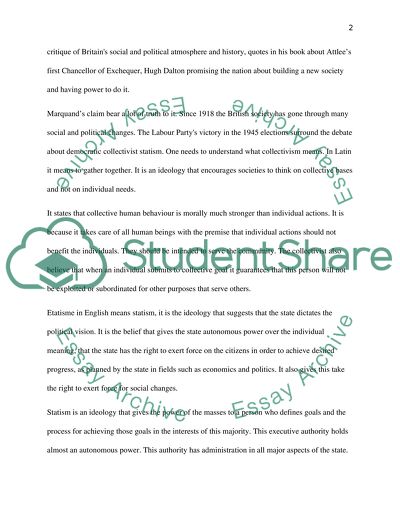Cite this document
(“2.The 1945 election put democratic-collectivist tatisme into the Essay”, n.d.)
2.The 1945 election put democratic-collectivist tatisme into the Essay. Retrieved from https://studentshare.org/history/1634292-2the-1945-election-put-democratic-collectivist-tatisme-into-the-saddle-d-marquand-is-this-a-fair-assessment-of-what-the-1945-51-attlee-governments-stood-for
2.The 1945 election put democratic-collectivist tatisme into the Essay. Retrieved from https://studentshare.org/history/1634292-2the-1945-election-put-democratic-collectivist-tatisme-into-the-saddle-d-marquand-is-this-a-fair-assessment-of-what-the-1945-51-attlee-governments-stood-for
(2.The 1945 Election Put Democratic-Collectivist Tatisme into the Essay)
2.The 1945 Election Put Democratic-Collectivist Tatisme into the Essay. https://studentshare.org/history/1634292-2the-1945-election-put-democratic-collectivist-tatisme-into-the-saddle-d-marquand-is-this-a-fair-assessment-of-what-the-1945-51-attlee-governments-stood-for.
2.The 1945 Election Put Democratic-Collectivist Tatisme into the Essay. https://studentshare.org/history/1634292-2the-1945-election-put-democratic-collectivist-tatisme-into-the-saddle-d-marquand-is-this-a-fair-assessment-of-what-the-1945-51-attlee-governments-stood-for.
“2.The 1945 Election Put Democratic-Collectivist Tatisme into the Essay”, n.d. https://studentshare.org/history/1634292-2the-1945-election-put-democratic-collectivist-tatisme-into-the-saddle-d-marquand-is-this-a-fair-assessment-of-what-the-1945-51-attlee-governments-stood-for.


